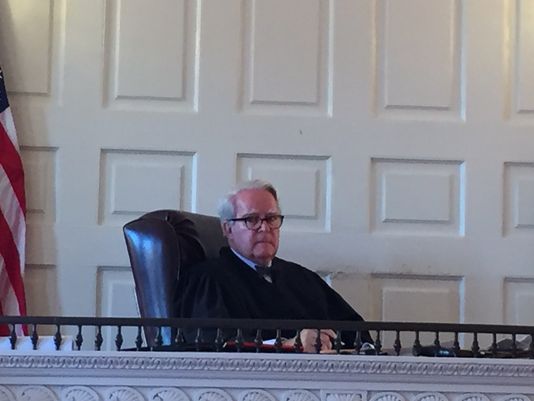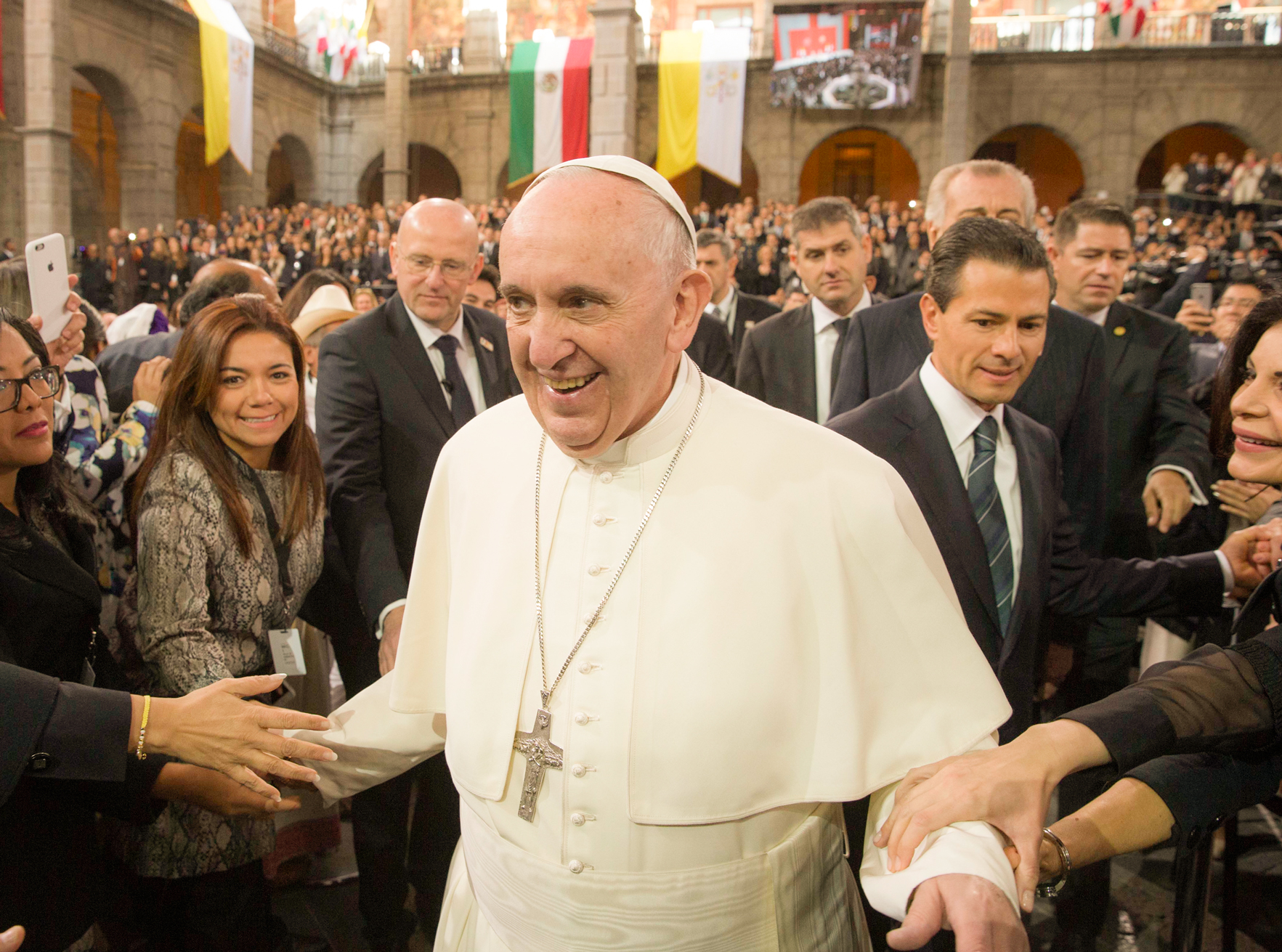A colleague recently brought to my attention this unfolding case in New Jersey: the state’s Department of Human Services is seeking a court order to prevent the death of a 29-year-old woman with severe anorexia nervosa who wishes to starve herself to death. The young woman, identified only as A.G., has received the full gamut of professional treatment both for this condition and for her severe alcoholism and depression. She now wishes only to be left alone; her mother and court-appointed guardian now fully support her in this decision. She has made it clear both in word and in act that the only way to keep her alive is to completely restrain her and force feed her through her nose several times per day.
The case went to trial this past Friday, and the presiding judge is none other than Paul W. Armstrong, the victorious attorney in the Karen Ann Quinlan case of 1975-76. According to the story in the Morristown Daily Record,
A.G.’s mother on Friday offered brief, emotional testimony to the judge, saying that she and her husband for more than 10 years sought every available treatment option they could for their daughter. She said she would still try if her daughter ever asked again for help.
“She hasn’t been able to take the treatment and thrive,” the mother said. She said she accepts her daughter’s decision to die because she is suffering and the thought of being force-fed “is causing tremendous anxiety” to A.G.
Her mother continues:
“We’ve spent the last 10 years looking into programs, taking her to doctors, going to family therapy. Taking her to the psychiatrist, helping her manage the medications,” the mother said. “I came to a point where I said I can’t make her do this anymore. She has said for the past three years she doesn’t want any more treatment. She doesn’t want it. If she said she wanted it, I’d be there in a heartbeat.”
What more is there to do? If she wishes to die, why not let her? Those who love her have done what they could. On what basis then may the state insist that A.G. cannot act in this way (which amounts ultimately to non-action) that will culminate in her death– a state-of-affairs she dearly wishes to bring about? Is the state under obligation to prevent someone at all costs from shooting themselves? If not, then why? Do we object to the suicide itself or to the amount of time and pain involved in this particular method?
Requests for euthanasia from people suffering from similar disorders have recently been granted in Belgium and the Netherlands. Although of course the New Jersey case does not concern physician-assisted suicide (PAS) but rather the right of someone diagnosed with a mental illness to starve themselves to death, the arguments of the case appear to be the same ones most typically invoked in the PAS debate. Almost as if anticipating the prospective “Aid in Dying for the Terminally Ill” act which is currently working its way through the New Jersey legislature, the state sought to argue that (1) anorexia nervosa is not a terminal illness and (2) A.G.’s chronic condition has rendered her incompetent to make this particular decision which will, in time, directly bring about her death.
The lawyers and experts argued over the implications of her condition, the prospects of her recovery, and even what it would take for her to “flourish.” Conspicuously absent from the reported discussion, however, is the more fundamental question raised by the expressed intentions of A.G. and those who see their lives as she sees hers: with enough scientific treatment and physiological manipulation, can you provide someone with enough hope to sustain their will to live?
Do we as a society merely presume a priori that total despair of this sort is irrational in some way? On what basis, after all, can a society assume that individuals in such a condition need help more than annihilation, especially if annihilation is their clearly stated wish? Any answer to this question must in turn draw upon an answer to a question that secular polities in principle cannot offer , namely whether and why it is good that human beings exist at all.
What is the true source of the worth of A.G.’s existence? Is it her “flourishing,” as determined by empirical means? Or is it simply whatever she says it is? The former response falls flat in the face of the sort of anguish that would lead a 29-year-old to will herself out of existence through starvation. Yet the latter leaves absolutely no ground upon which we can articulate and pursue any real common good together as human beings.
In this way, the utter abandonment of hope, even if by a solitary individual (and by definition it happens in no other way), deeply corrodes our sense that the common good we share is anything more than an abstraction. We need food, we need water, we need sanitation, roads, recreation and the like, yes, but without any shared understanding of whether and why it is good that we exist at all, the motivating impetus to pursue such social necessities remains continually vulnerable.
The experiment in secular politics that is our country is functionally agnostic. But agnosticism, like atheism, cannot give us any meaningful answer to the question of why WE– collectively as a community, state, or species–should take our own existence as a good to be pursued and defended. A functionally agnostic polity cannot therefore provide any real response to the determination of any one individual that their life is no longer worth living. Not too long ago, in a lecture he gave at the NYU Catholic Center, the philosopher Remi Brague pointed out this fatal flaw in the atheistic worldview:
In the teeth of all its successes, atheism even in its mildest form, i.e. as agnosticism, contains a lethal drawback, a sickness unto death. For there is a question on which atheism hasn’t anything to say. This fundamental question is: if we admit that there are on this earth men, i.e. beings who are able to give an account of the universe that surrounds him—able to do Physics—and able to live peacefully with his fellow men, and if he is able in both cases to do that without his having to look towards any transcendent reality like a god—the question remains: would it be good that such a being should be and keep existing?
I’m not sure there is any legal basis for preventing people like A.G. from starving themselves to death. Ultimately, that’s because our society professes no consensus as to why it is good to exist in the first place; indeed, if there is any substantive anthropological claim to which our society commits us to assent, it is that there should be no determined consensus on an answer to that question.
There is no return to theocracy in the civic sphere, at least not anytime soon. But perhaps there can be more clarity as to the limitations in scope of the common good implicit in our secular political framework. Such clarity would then lead Christians to acknowledge where the sort of solidarity to which God calls us must necessarily exceed what the law or civic custom would require. After all, God’s kingdom will always be deeper, richer, and more inclusive than the kingdoms of this world.
Hence A.G.’s decision cannot help but strike Christians– and others whose worldviews likewise commit them to the view that A.G.’s life is and always will be of inestimable worth– as a judgment upon the community to which she belongs. From the Biblical perspective, at the heart of our life together should be the conviction that we are indeed our brother’s, our sister’s keeper. What is it that we are enjoined to “keep” with respect to our brothers and sisters but the clear vision of both their infinite value and their irreplaceable uniqueness? What would it mean to actually live together as if that value and uniqueness were not the willed determination of each single solitary will but rather a feature of the world as real and universal as its very existence? How can we carry out the charge to be each other’s keepers without any shared hope extending beyond the realm of individual choice? How can we seek the good of all without a shared understanding of why it is good that any of us should be here in the first place?




This is such a tragic case and I am glad you are drawing attention to it. Your highly theological approach raises great questions, most particularly why it is good to exist, especially when existing will inevitably involve suffering. No doubt, it would be better for A.G. to exist. We can, as Christians say that definitively. But ethically, do we have an obligation to do anything possible to keep her in existence, to convince her of irreplaceable uniqueness? Undoubtedly no.
You are right I think to draw attention to the privations in the conception of “community” we have in light of the A.G. case. But even if we had such a community united in a common purpose founded on respect and protection of our brothers and sisters, I would still argue that in a case like A.G.’s, we do not have an obligation to do everything possible to save their life. Perhaps one of the best things we can give her now is hope of a God who loves her and wants her to exist with Him in spite of her illness, her desire to die, and even her rejection of the gift of life she has been given. Is not one of the markers of the Christian community hope in a God who can ultimately love in a way we are unable to do ourselves?
Yes, absolutely. Coercion can do just as much damage to her dignity, as it denies her capacity for free action. But one also has to take into account the degree to which her illness also denies her this capacity. At the same time, though, it is hard to argue that she will see things differently if more properly nourished, since she has already been down that road. Circumstances like this one reveal the deep need for a more relational anthropology than the law can admit. Those who love her most are in the best position to see through her despair and to act in hope on her behalf.